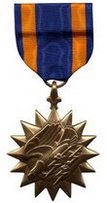Buddy Lewis
Ballplayers Decorated in Combat
| Date and Place of Birth: | August 10, 1916 Gaston County, NC |
| Date and Place of Death: | February 18, 2011 Gastonia, NC |
| Baseball Experience: | Major League |
| Position: | Third Base |
| Rank: | Captain |
| Military Unit: | 1st Air Commando Group US Army Air Force |
| Area Served: | China-Burma-India Theater |
John K. “Buddy” Lewis, Jr., was born in Gaston County, North Carolina,
on August 10, 1916. He attended Lowell High School in Lowell, North
Carolina, and went on to play baseball at Wake Forest University. He was
also the captain and star third baseman on the Post 23 team that
advanced to the Legion World Series in 1934.
Lewis signed with the Washington Senators after his freshman year in
1934. The 6-foot-1-inch third baseman played 10 games for the
Chattanooga Lookouts of the Class AA Southern Association and was back
with the team in 1935, playing 154 games and batting .303, which earned
a late-season call-up by the Senators. Lewis made his big league debut,
aged just 19, against the Chicago White Sox on September 16.
In 1936, Lewis had earned a place in the Senators starting line-up. He
appeared in 143 games and batted .291 with 67 RBIs. In 1937, at just 20
years of age, Lewis hit .341 with 79 RBIs and 10 home runs, and led the
league with 162 singles. He was an all-star selection in 1938, and
continued to be one of the top hitters in the American League year after
year.
Lewis was drafted for military service early in 1941, but given a
deferment to finish the baseball season. After batting .297 for the year
with 72 RBIs, it was time to swap flannels for military fatigues.
“When I found out I was going to be drafted," said Lewis, "I enlisted in
the Air Corps because I wanted to fly. I took basic training at Fort
Knox, and the day I was to ship out for North Africa, my orders came
through for flight school in Texas. That was the best thing to happen to
me."
Lewis was later based at Lawson Field, Georgia, and before going
overseas he returned to Washington to say goodbye to his teammates.
After leaving Griffith Stadium, Lewis flew his airplane low over the
field.
A C-47 transport pilot, Captain Lewis served with the 1st Air Commando
Group (ACG) in the China-Burma-India Theater, evacuating the wounded,
towing gliders and flying essential supplies over the Burma jungle. His
airfield was in India, and Captain Lewis had been selected for this job
by the commanding officer of the 1st ACG, Colonel Philip G. Cochran.
Beginning in March 1944, the group entered combat almost immediately,
operating in support of Wingate's Raiders behind Japanese lines in
Burma. Towing a glider loaded with Wingate's men, Lewis led them safely
over jungle-clad hills and across enemy-held positions to deliver them
200 miles behind Japanese lines. He then went back the next six nights
loaded with reinforcements, plus mules, artillery and supplies, and
landed his plane on a jungle air strip.
Lewis was told that if he crashes to come out of the plane with a
baseball in his hand because the Japanese loved baseball and it might
just save his life. He was also told to carry a cake of cocaine in his
pocket because if he crashed, the natives loved the stuff and would get
him out of the jungle to safety. Lewis amassed 1,799 flying hours of
which 611 were in combat during 392 missions.
He spent 18 months in the CBI Theater, where he occasionally ran into
Hank Greenberg. Upon his return in 1945, with the Distinguished Flying
Cross (for precision flying) and Air Medal with oak leaf cluster pinned
to his chest, he commented, "I've been away so long, I've practically
forgotten baseball."
"My good fried, Buddy Lewis," recalled teammate George Case, "left for
war and missed four years of baseball. He left a dark-haired man and
came back to us at the end of 1945 with a full head of white hair and
some hair-raising stories."
Lewis was back with the Senators in 1945 and played in 69 games. Being
away from the game for so long didn’t seem to affect his batting eye as
he hit .333. By 1947, Lewis was back in his all-star stride, but he quit
baseball after the 1949 season and bought a Ford dealership in Gastonia,
North Carolina.
Lewis later said, "When I came back from the war, my philosophy of life
was completely different. I had changed so much that baseball didn't
mean as much to me as it did before the war."
Buddy Lewis passed away in Gastonia, North Carolina, on February 18,
2011, aged 94.
Date Added January 21, 2018
Can you add more information to this biography and help make it the best online resource for this player? Contact us by email
Read Baseball's Greatest Sacrifice Through The Years - an online year-by-year account of military related deaths of ballplayers
Baseball's Greatest Sacrifice is associated with Baseball Almanac
Baseball's Greatest Sacrifice is proud to be sponsored by


